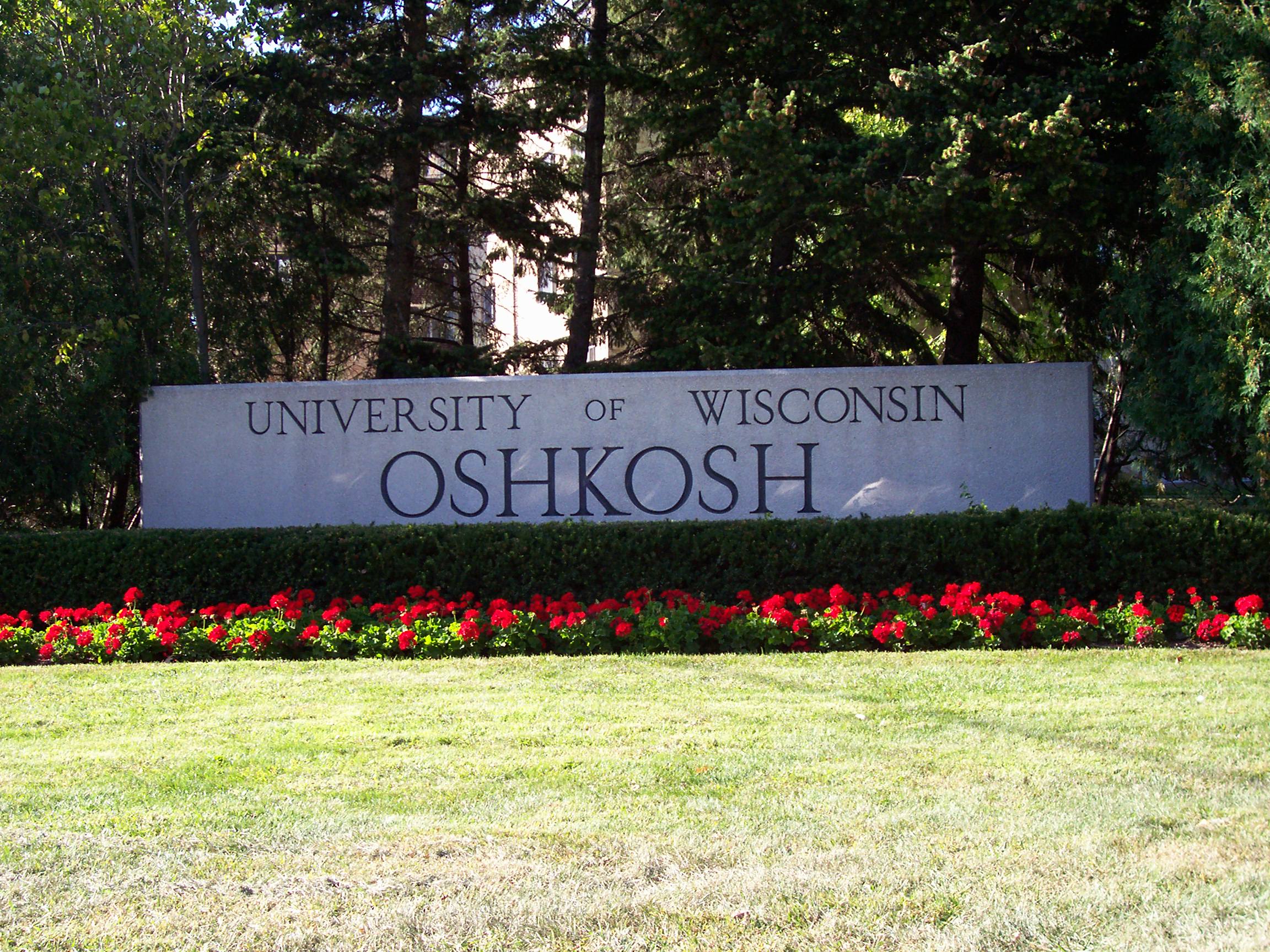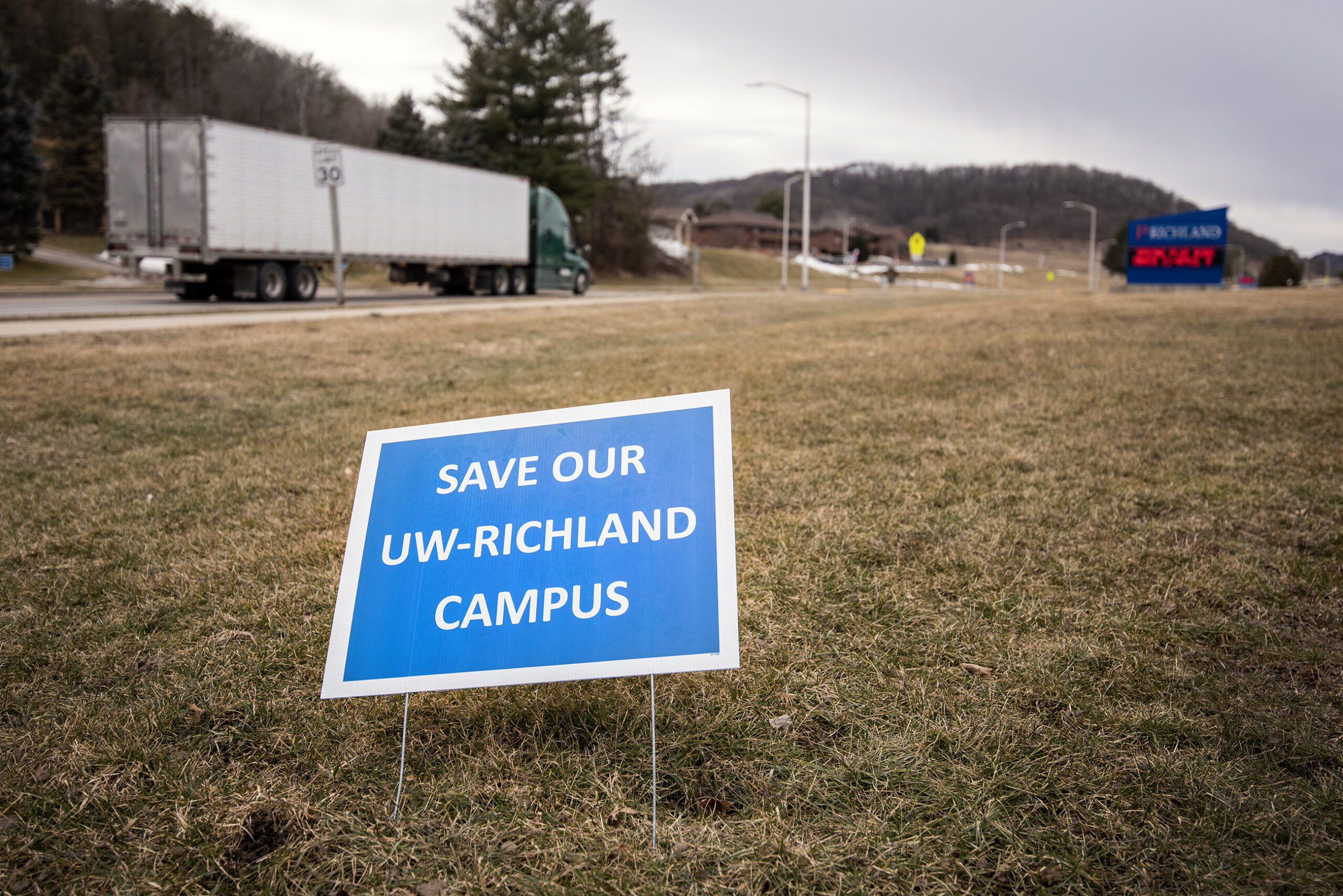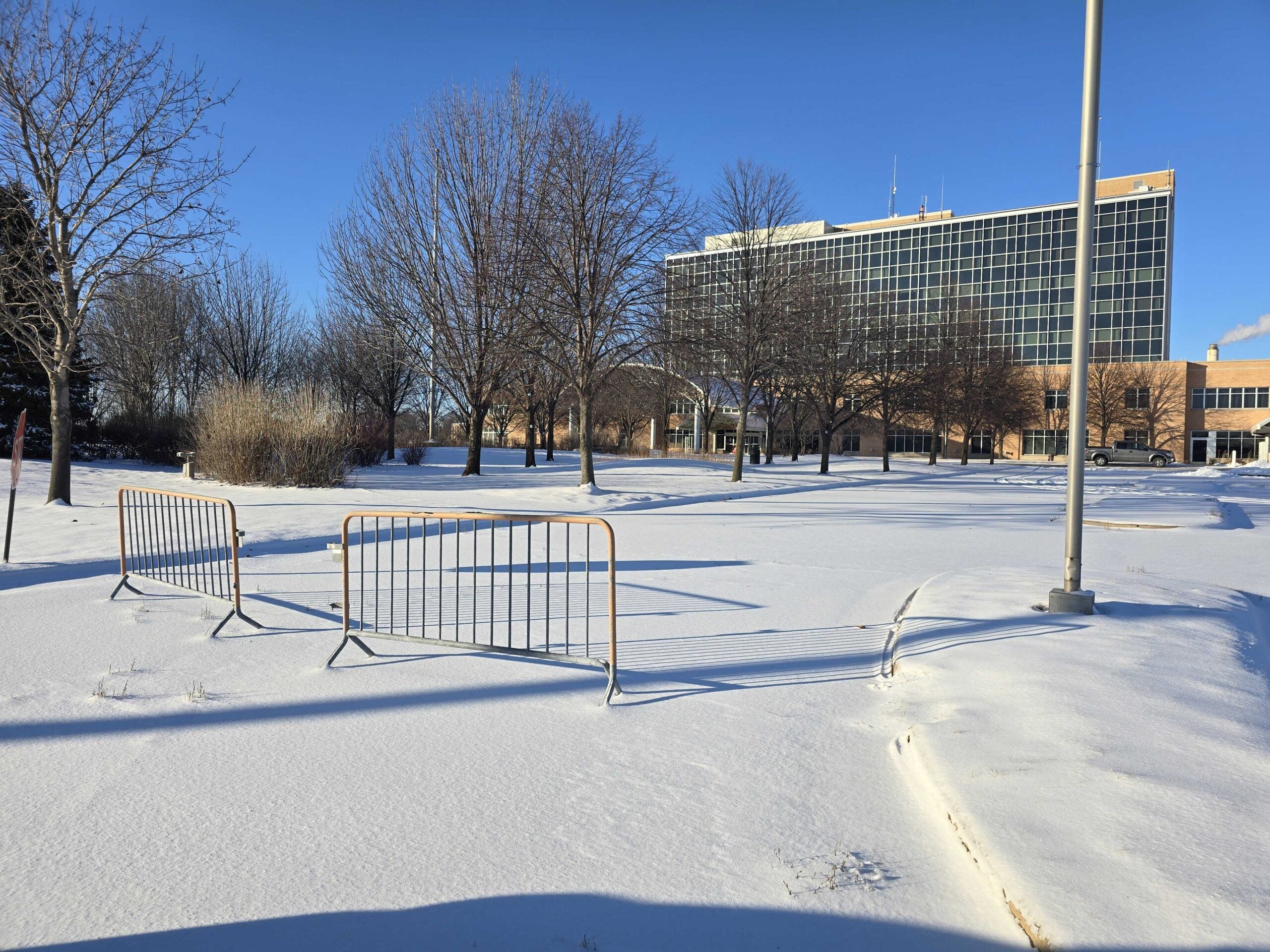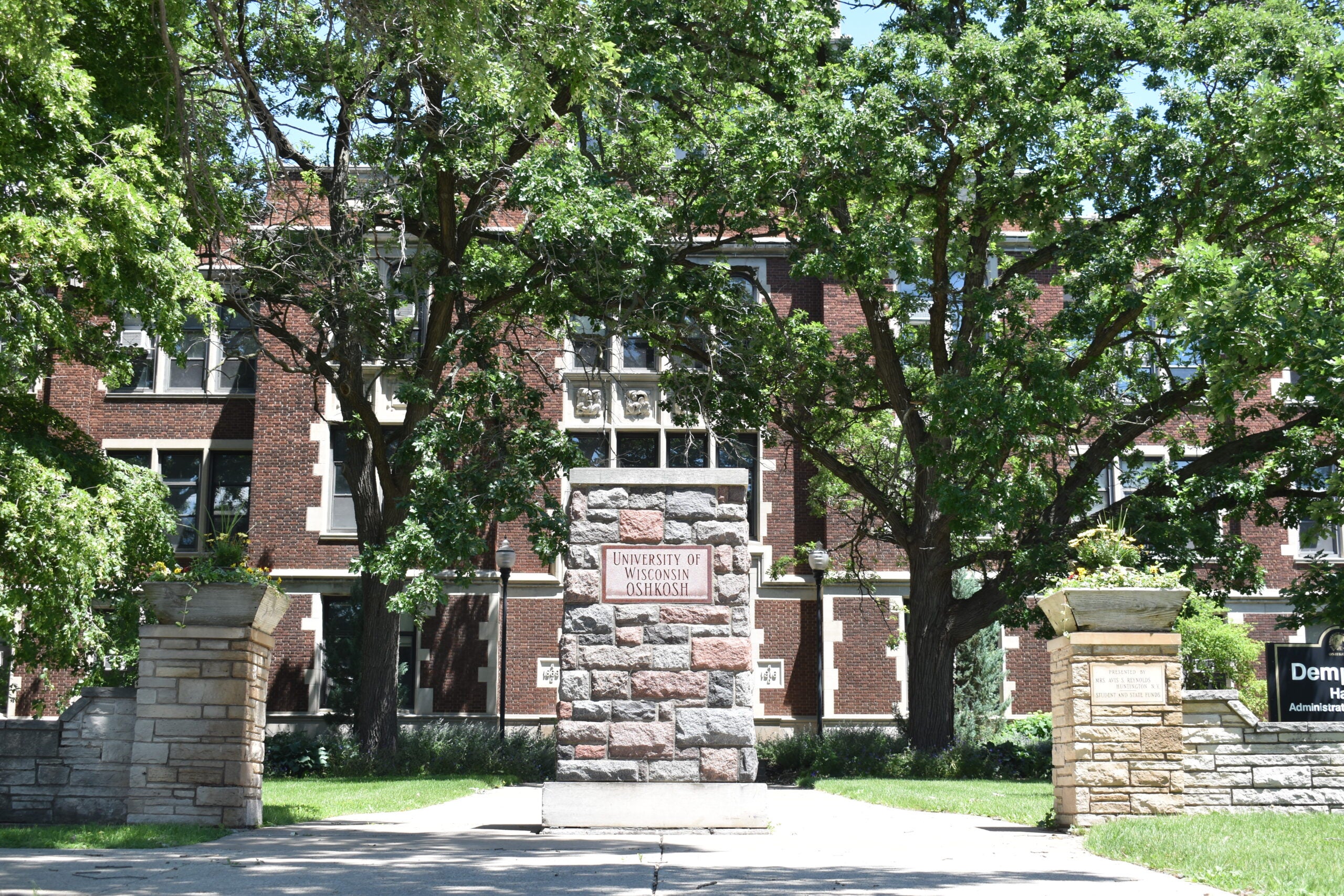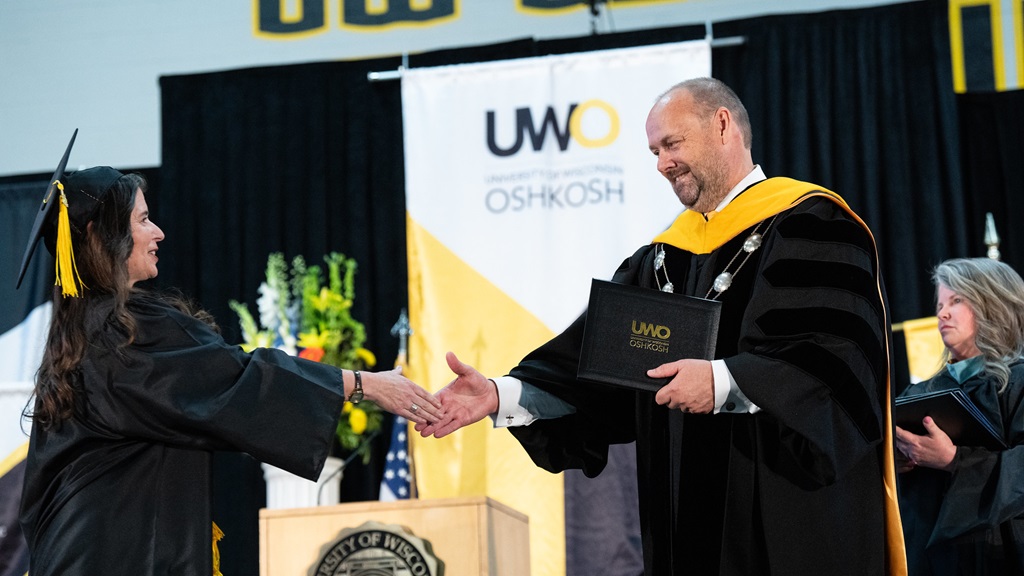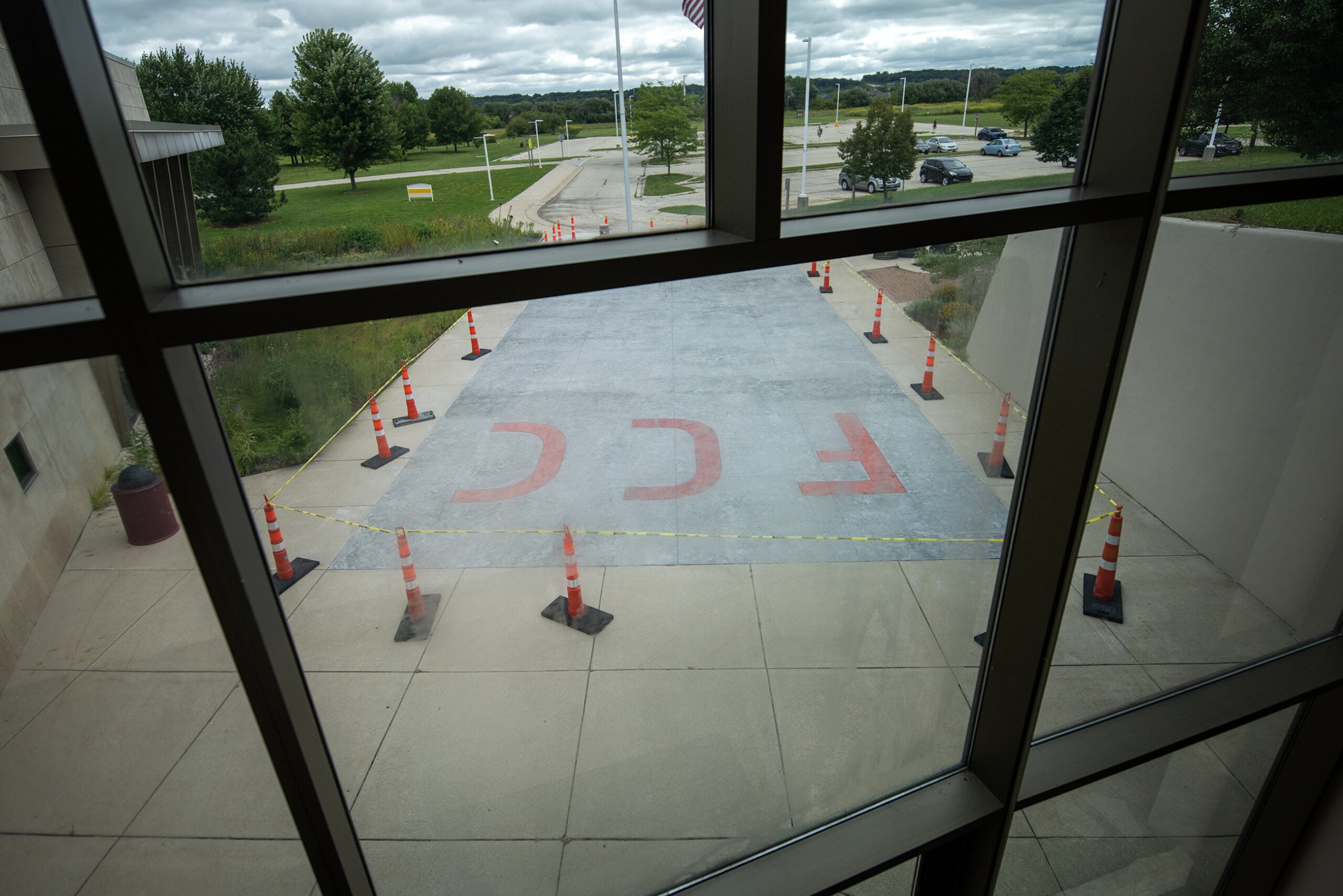The nonprofit University of Wisconsin-Oshkosh Foundation is in the throes of Chapter 11 bankruptcy. Two former officials, Chancellor Richard Wells and Vice Chancellor Thomas Sonnleitner, are also being sued in civil court by the University of Wisconsin System.
Normally, foundations are meant to be the fundraising arms of their campuses and providers of scholarships and financial assistance.
But, the UW-Oshkosh Foundation got into red ink because of five development deals. They include: two bio-digesters that turn farm waste into energy; a hotel, which has proven financially solvent; an alumni welcome center; and a sports complex.
Stay informed on the latest news
Sign up for WPR’s email newsletter.
The foundation is $14.5 million in debt and the UW System has refused to fill the budget hole. The debt is mostly associated with property and the creditors include:
- Madison-based First Business Bank, $6.6 million
- BIOFerm Energy Systems of Madison, $678,000
- First National Bank of Manitowoc, $5.6 million
- Wells Fargo Bank of Milwaukee, $1.6 million
In another financial wrinkle, First Business Bank seized $1.2 million from UW-Oshkosh itself late in 2017 because of debt it was owed from the foundation.
UW System spokeswoman Stephanie Marquis said Wells and Sonnleitner allegedly promised business partners that loans for the various projects would be backed up by the university.
“After they made the illegal transfers related to illegal guarantees of loans, they actually hid that information in the records they filed with the system’s financial staff,” Marquis said.
The financial troubles have led the Legislative Audit Bureau to recommend more stringent accountability rules to other similar, private, nonprofit foundations associated with UW campuses. Officials recommend university campuses should have their chancellors file annual financial statements and foundation reports should be reviewed by independent certified public accountants.
Marquis said those measures are meant to insure that “both sides of the ledger” are revealed.
Oshkosh attorney Paul Swanson, who was recently selected as president of the Wisconsin Bar Association, said at best, the case is complicated.
“There’s nothing easy about this case,” Swanson said.
He said the foundation’s directors kept the university’s Board of Regents abreast of their financial transactions.
“The foundation would have never entered into agreements to do the bio-digester near Rosendale, for example, without some kind of fallback,” he said.
That project has the foundation on the hook for $4.1 million.
Swanson also said the foundation wouldn’t have spent $12.5 million on the alumni welcome center if it didn’t have approval from the UW System.
The situation doesn’t shock Miles Maguire who teaches journalism at UW-Oshkosh and covers the situation for the Oshkosh Independent.
“It’s hard to say that anyone should be surprised that you have this type of outcome,” he said.
In part, Maguire said the trouble shows campuses are turning to the private sector for support as taxpayer funding declines.
“Another is a model that government should be run like a business. And the third one is the idea that heads of universities should be oriented toward the private sector,” he said.
Maguire added that risk is part of “doing business.”
“It’s not unusual for businesses and business executives to go through bankruptcy,” he said.
Wisconsin’s public university foundations are nonprofit organizations funded primarily through private donations and investments. The LAB’s recommendations, issued in February, said there should be more transparency and separation as to how the money is used and where it is coming from.
That may require legislation, said state Sen. Robert Cowles, a Republican who represents the 2nd state Senate District and co-chairs the Legislature’s Audit Committee. He also said he has confidence in UW System President Ray Cross and the Board of Regents to establish clearer rules regarding foundations.
“They’ve started a policy to create that separation and they’re in the midst of it,” Cowles said.
Cowles said private “affiliates” of foundations, such as investors in bio-digesters or real estate, need more scrutiny.
“The Board of Regents has not created a policy on those and that is one of the Legislative Audit Bureau’s recommendations,” he said.
Things don’t look like they will clear up soon. Both sides expect the case to eventually wind up in the state Supreme Court.
“The situation looks bad for Oshkosh,” Cowles said. “They were trying to grow and they were trying to do innovative things. However, they were using taxpayer money and student money, and they didn’t necessarily have the authority to do that. So, now you’ve got litigation.”
UW-Oshkosh sophomore Tyler Tender said he finds the financial problems troubling.
“I like the idea of bettering the campus. But at the same time, we need to be able to pay for our books, our schooling, because that comes first,” Tender said.
While the foundation goes through bankruptcy and the two former officials fight off civil suits for the alleged improper financial transactions, UW-Oshkosh students like Richie Levrette hope for the best.
“It’s kind of like a dark cloud over campus when everything should be turning up,” he said.
Editor’s note: This story originally and incorrectly stated Wisconsin’s public university foundations receive funding from student fees and tax dollars, they do not.
Wisconsin Public Radio, © Copyright 2025, Board of Regents of the University of Wisconsin System and Wisconsin Educational Communications Board.
